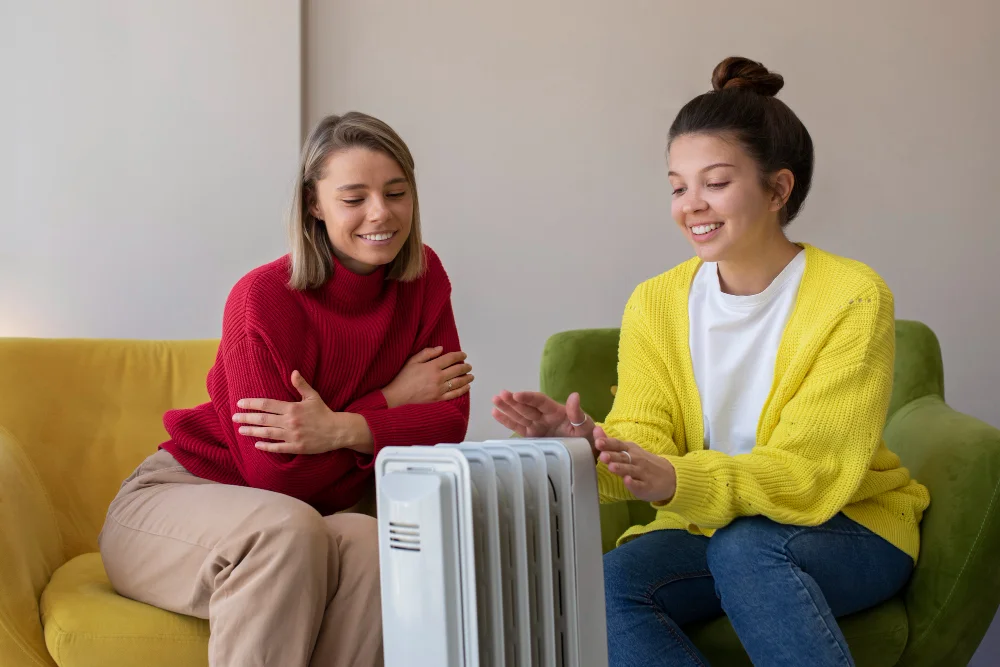As colder weather arrives, the need for a warm and comfortable home becomes a priority. However, running your heating system can lead to a noticeable increase in your energy bills. Fortunately, there are several practical and effective ways to reduce heating expenses without sacrificing comfort. By implementing a few key strategies, you can keep your home cozy and manage your budget throughout the winter months.
Optimize Your Thermostat Settings
One of the simplest yet most impactful ways to control heating costs is by managing your thermostat effectively. A few small adjustments can lead to significant savings over the entire season.
Program for Savings
If you have a programmable or smart thermostat, use it to your advantage. Set the temperature lower by several degrees when you are away from home or asleep. Adjusting the temperature down by 7-10°F for eight hours a day can reduce your annual heating bill by as much as 10%. This simple habit means you are not paying to heat an empty house or keep it overly warm while you are sleeping.
Find Your Ideal Temperature
Experiment to find the lowest comfortable temperature for your household when you are at home and awake. Even lowering the thermostat by a single degree can make a difference in your energy consumption. Consider wearing warmer clothing indoors to stay comfortable at a slightly lower temperature.
Seal Your Home from Air Leaks
A significant amount of heat is lost through gaps and cracks in a home’s exterior. This forces your heating system to work harder to maintain a consistent temperature. Sealing these leaks is a crucial step in improving energy efficiency.
Locate and Seal Drafts
Inspect your home for air leaks around windows, doors, electrical outlets, and areas where pipes enter the house. You can often feel these drafts with your hand on a windy day. Use weatherstripping to seal gaps around doors and windows. Apply caulk to fill cracks in walls and around window frames. This small effort prevents warm air from escaping and cold air from entering.
Insulate Your Windows
Windows can be a major source of heat loss. Applying plastic film to the inside of your window frames can create an extra layer of insulation, trapping air and reducing heat transfer. Another effective solution is to use heavy, insulated curtains. Keep them open during the day to let in sunlight and close them at night to retain heat.
Maintain Your Heating System
An efficient heating system uses less energy to produce the same amount of warmth. Regular maintenance is crucial to keep your furnace or boiler functioning optimally.
Regular Filter Changes
A dirty or clogged filter in a forced-air heating system restricts airflow, forcing the unit to work harder and consume more energy. Check your filter monthly during the heating season and replace it as needed, typically every one to three months. A clean filter improves efficiency and can also extend the lifespan of your system.
Schedule Professional Tune-Ups
Annual professional maintenance is vital for the health and efficiency of your heating equipment. A qualified technician will clean and inspect all components, ensuring they are running safely and effectively. Addressing potential issues early can prevent costly breakdowns and keep your system at peak performance. If you have a specific type of system, a targeted check-up like a boiler service in Park City can address its unique needs and optimize its function.
Use Your Home’s Features Wisely
Adjustments to your daily routine can help you capitalize on natural heat sources and improve air circulation throughout your home.
Let the Sunshine In
Take advantage of the sun’s natural warmth. Open your curtains on south-facing windows during the day to let sunlight heat your home. Remember to close them as the sun sets to trap the warmth inside.
Ensure Proper Airflow
Check that your furniture, rugs, and curtains are not blocking heating vents or radiators. Obstructed airflow prevents heat from circulating effectively, leading to cold spots and making your system run longer. Keeping these pathways clear ensures that the warm air produced by your system reaches every part of the room.
By adopting these habits, you can effectively lower your heating costs this winter. Simple thermostat adjustments, sealing air leaks, and maintaining your equipment will contribute to a more energy-efficient and comfortable home.


